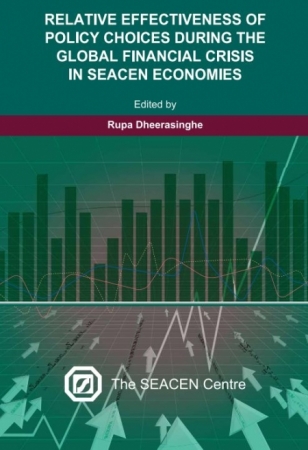This study attempts to review policy options available for the authorities and examine their relative effectiveness in SEACEN member economies during the recent global financial crisis. During normal times authorities often have space and flexibility to use policies impacting macroeconomic stability and sustaining economic growth but in crisis situations the challenges can be quite different from those under normal conditions. Firstly policy makers have limited options with regard to choice of policies and implementing them within a short period of time to address critical issues and obtain desirable outcomes. Secondly the degree of effectiveness of the policies that have been adopted could also be different when compared with the results that were achieved through the same set of policies under normal circumstances. The outcome also may change from country to country as well as conditions under which such policies are adopted. Thirdly normal monetary transmission mechanism may not be effective in a situation of market failure or lack of market confidence. Further conventional policies may not be suitable and may have limited success in a particular sector which needs special attention during a crisis. Therefore choosing effective policies to mitigate a crisis and obtaining the desired outcome within a short period of time is a formidable challenge that the policy makers face in a crisis situation.
-
About Us
-
Events
-
Publications
-
About The SEACEN Centre
-
The Centre's Governance
-
Courses

